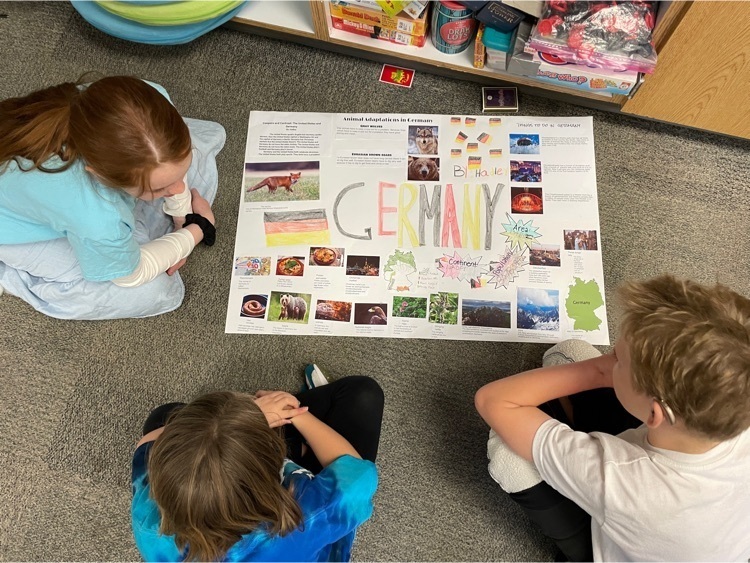Fourth grade students in Mrs. Swartzendruber's class celebrated the completion of IAR testing today with a donut and a joint kickball game with 5th grade.



Fire Updates: OHS and OMS students will not have school tomorrow, April 14th. There will *not* be a remote learning day. Elementary school will be in attendance for a normal school day. Thank you for all of the support and concern that was expressed today. 💙

Updates: All OHMS students have now either left campus to drive home or have evacuated to Minier Christian Church. Parents, you must pick up your children from the designated evacuation location at Minier Christian Church. Lines for pick up are long, so please be patient as all of the necessary evacuation procedures are followed. At Minier Christian Church you will be greeted by an adult and must present an ID to pick up your child(ren). No individuals will be allowed on the OHMS campus for the rest of the day. Fire officials will be on site all evening completing their necessary work.
More information will be shared soon regarding the status of the building and plans for school operations tomorrow.
All after school events at Olympia CUSD 16 have been cancelled for this evening due the the fire at the OHMS campus.
There is an active fire at the middle school / high school campus. All students and staff are safe.
Do not come to the OHMS campus as this will interfere with the evacuation process.
High school students who can drive will be sent home. All other high school and middle school students are being evacuated to our designated evacuation zone at Minier Christian Church. Pickup will occur there. More information regarding the timeline for pickup will be shared soon.
Due to buses needed for the evacuation, elementary buses will run their afternoon routes but they will not be on time. Parents can pick up their elementary students from school, but first need to call their child's school office.
We will continue to share details as soon as we can.
Save the Date!!! 5th grade students and families are invited to attend 6th Grade Orientation on May 4th. The evening will include sessions to assist students in a smooth transition to Olympia Middle School. Dinner and childcare are provided. Please RSVP using the QR code or the following link: https://docs.google.com/forms/d/e/1FAIpQLSdfxCtuu13-E045FybXJCuGxF4-smRXU93m66_oCRNcsTvofA/viewform

Mrs. Swartzendruber's fourth grade class has been working hard taking the IAR state. Students are counting down the days until they can open the mystery box.

West first graders have been learning about daytime and nighttime patterns, along with stars and the planets. One group in each class worked hard this week to develop their reading fluency while learning about the planet Mercury. Enjoy!
https://youtu.be/Nd5VS-_pu0g

Fourth graders are showing off their writing skills by presenting a state newspaper to the class. Each student had to research a state in the United States and create a newspaper with facts and images about the state's geography, economy, culture and state symbols.

Ms. Hilt's 2nd Graders performed a bunny themed readers theater with puppets they created today! They all did a fantastic job! 🐰





Thank you to all our Spartan Paraprofessionals that work tirelessly for our students. We could not survive without you!

The storms can't ruin first grade's fun! Both classes met and worked together during their weekly Second Step lesson. Students practiced giving compliments and filling each other's buckets.

Congratulations to Olympia West Kindergarten teacher Mrs. Boznos for winning $1000 to spend in her classroom from WEEK News 25 and CEFCU. Mrs. Boznos was nominated by a grandparent that volunteers in her classroom. Congratulations!

Third grade presented their country research project posters today!




This week, middle school staff took a trip to each elementary school to talk to 5th graders about what it is like to be a student at OMS. This trip is the beginning of a number of orientation events to support students in their successful transition to 6th grade!



The OHS NHS is sponsoring an Easter Egg Hunt at OMS on Sunday, April 2 from 1-3. In addition to the egg hunt, there will be crafts, face painting, games, and more. Ages 2-8. The event is $5. All proceeds benefit St. Jude.
Make a reservation by email:
amanda.hapgood@olympia.org

Mark your calendars. Grandparent's Day is scheduled for April 28, 2023, at Olympia West. More information will be shared in April.

The Pre-K dentist office opened today! The students practiced giving checkups and cleaning teeth using a model of a mouth and an alligator.




Spartan Staff spent the morning in various professional development sessions on topics including trauma responsive instruction, restorative practices, special education strategies for students, elementary science instruction, and regulation strategies for students. Thank you to all our presenters!


The 2023 Spartan Retirees were recognized this morning. Congrats to Dr. Jodlowski, Mrs. Deal, Mrs. McDannald, and Mr. Stine. Thank you all for your dedication to our students and families over the years. You will be missed!

